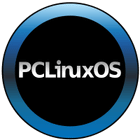
Ubuntu
Open SourceUbuntu is a free and open-source Linux distribution based on Debian. It is renowned for its user-friendly interface, extensive software repository, and strong focus on stability and security, making it a popular choice for desktops, servers, and cloud computing.
Key Features
-
User-friendly interface, making it accessible to new Linux users.
-
Large and diverse software repository through APT and Snap.
-
Stable and reliable, especially LTS versions.











































































